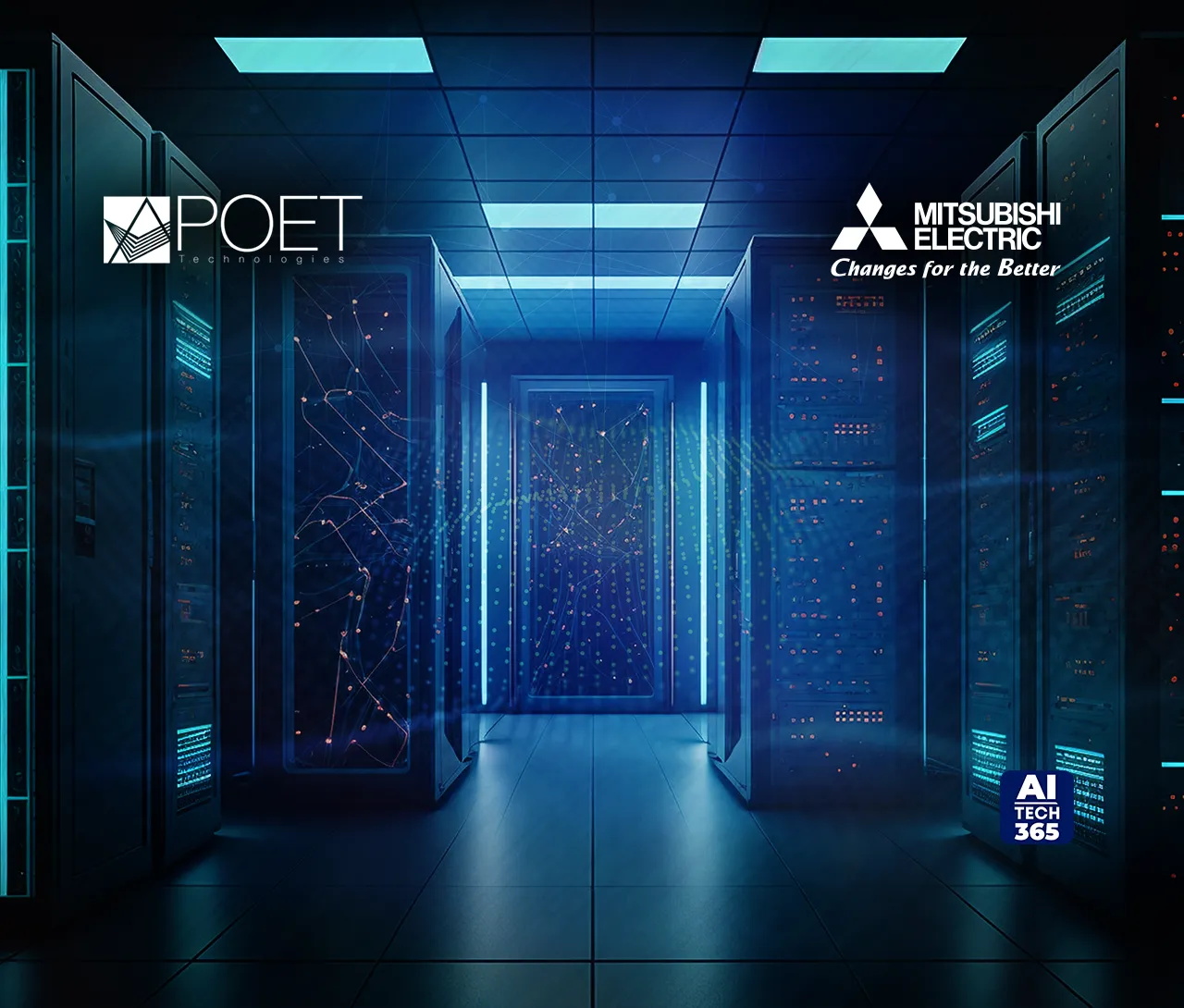POET Technologies Inc., the designer and developer of the POET Optical Interposer™, Photonic Integrated Circuits (PICs) and light sources for the data center, tele-communication and AI markets, announced it has entered into a collaboration with Mitsubishi Electric Corporation to co-develop integrated optical engine chipsets for 3.2T pluggable transceivers, a highly sought-after product for optical connectivity in the rapidly growing artificial intelligence networking market. POET and Mitsubishi Electric will jointly support product demonstrations with major customers.
“Mitsubishi Electric is committed to ensuring we give our customers the technological advantage to maintain their positions as industry leaders in their own sectors. We believe POET’s optical engines will open the possibility of creating new products where electronics photonics convergence is successfully achieved at an advanced level of integration between InP and Si-based interposer, which take us and our valued customers into the next generation of data networking for AI and hyperscale data centers,” says Yasuhiro Yamauchi, General Manager, Optical Device Department at Mitsubishi Electric. “This promises to be a momentous technological achievement when it is unveiled.”
Mitsubishi Electric will contribute its highly differentiated 400G Electro-absorption Modulator integrated Lasers (EMLs) to the project. Using its optical interposer platform technology, POET will integrate the EMLs along with drivers, optical waveguides, and other key functional building blocks to produce 1.6T and 3.2T optical engine chipsets.
Also Read: Aramco & Groq: Building World’s Largest AI Data Center
“The AI and datacom networks need a pluggable transceiver solution for 3.2T and POET’s optical interposer is one of the few technologies that can achieve that performance. When our Mitsubishi Electric colleagues understood the full functionality of the optical interposer and its potential to optimize the performance of their leading-edge lasers, they knew that we offered the right solution for their needs,” says Dr. Suresh Venkatesan, POET Chairman and CEO. “It’s further validation that what we have worked so hard to achieve over these past five years is coming true. POET’s products are steadily being adopted by the industry and we expect demand to accelerate as our customers gain further understanding of the power efficiency and cost savings that we offer to them and their customers.”
POET and Mitsubishi Electric aim to complete the 1.6T and 3.2T optical engine chipsets in early 2025 and to then demonstrate the innovation during the first half of that year.
AI and cloud datacenter networks are the leading consumers of pluggable optics. The global optical transceiver market for 800G and 1.6T is projected to grow at a CAGR of 33% from $2.5 billion in 2024 to $10.5 billion by 2029, according to LightCounting’s forecast.
Source: GlobeNewsWire

